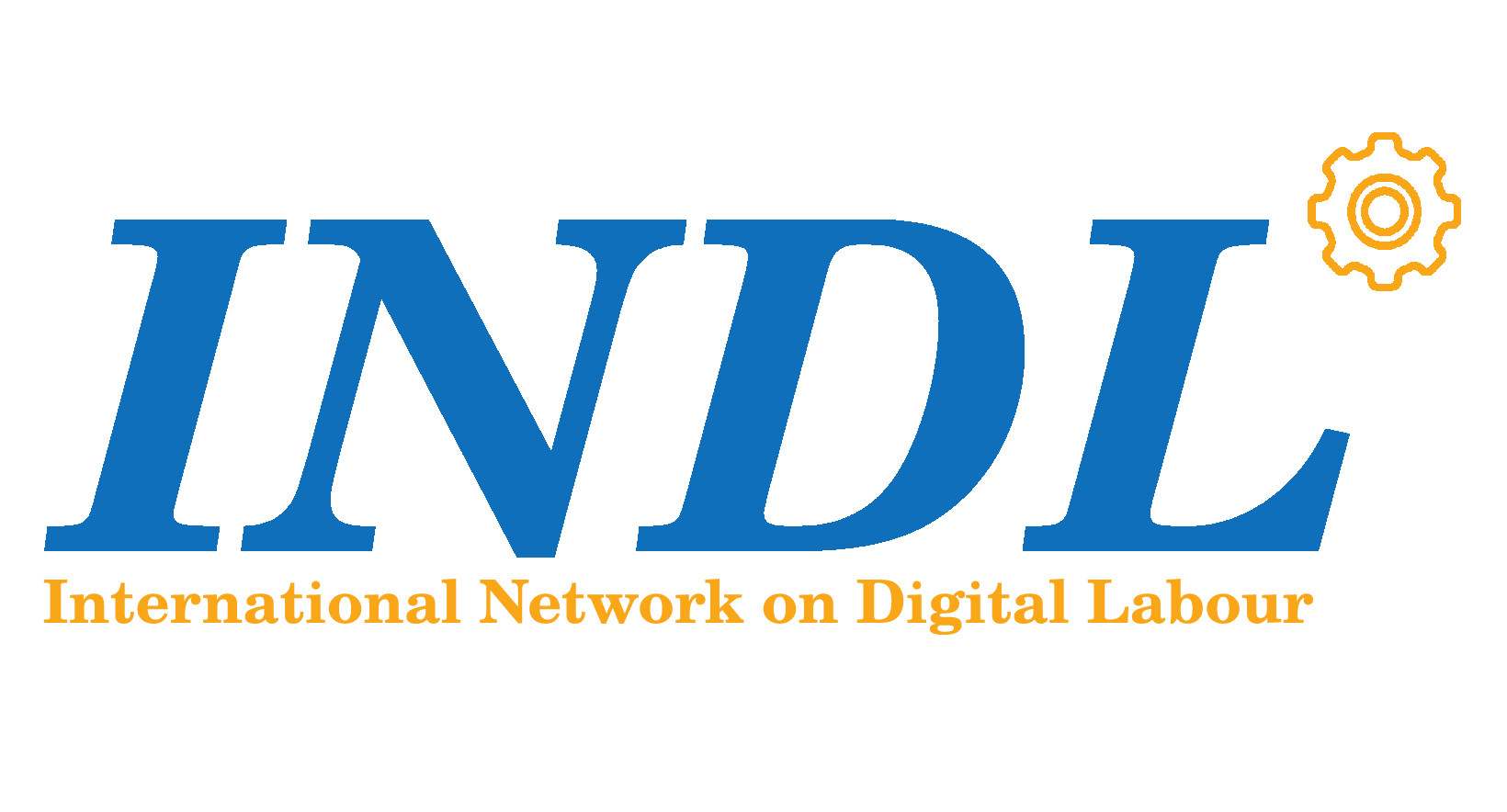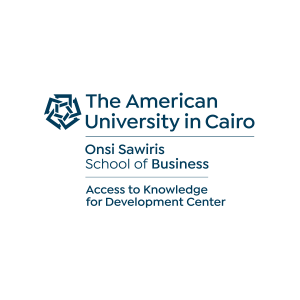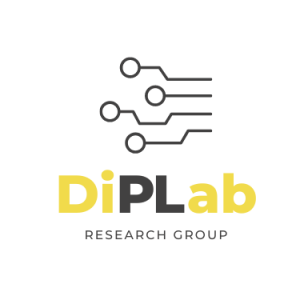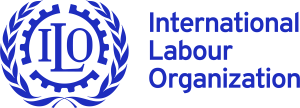#INDL
INDL-MEA 2 conference
25-26 November 2025
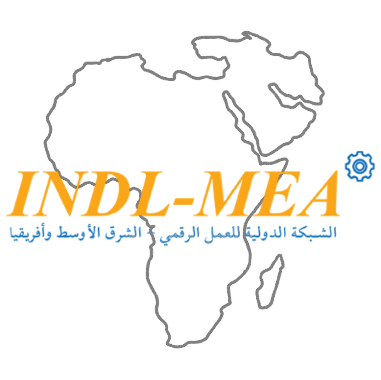
Program Day 1
| Tuesday, November 25, 2025 | |
|---|---|
| 12:30 - 13:00 | Welcome address - Myriam Raymond, GRANEM, Université d'Angers; Nagla Rizk, American University of Cairo; Sarrah Kassem, Scuola Normale Superiore, Firenze; Antonio A. Casilli, IP Paris |
| 13:00 - 14:20 | The Political Economy of Digital Labor in MEA Chair: Søren Bøgh Sørensen, Copenhagen Business School |
| 13:00 - 13:15 | › On the rising phenomena of Troll Farming: Electronic Committees and the Exploitation of Digital Labor in the Middle East - Myriam Raymond, GRANEM, Institut d'Administration des Entreprises (IAE) - Angers, Digital Platform labor |
| 13:15 - 13:30 | › The Social Production of Disinformation: Labor, Ideology and Patriotism in Iranian Troll Farms - Marina Ayeb, University of Urbino; Selem Chaouachi, Institute of Press and Information Sciences |
| 13:30 - 13:45 | › The Political Economy of Digital Labour in Bangladesh and MEA: Comparative Perspectives on Platform Work and Precarity - Dr. Md. Hasan Ali, Selinus University |
| 13:45 - 14:00 | › Algorithmic Management, Data Practices and Worker Precarity on Ride-hailing Platforms in Kenya - Geoffrey Ochieng, Independent researcher |
| 14:20 - 14:30 | Break |
| 14:30 - 15:00 | Special Report: Data Work in Egypt - Myriam Raymond, Paola Tubaro, Antonio Casilli, Lucy Neveux |
| 15:00 - 16:20 | Algorithmic Management and Workers’ Rights Chair: Kauna Malgwi, Digital Rights and Mental Health Initiative Africa |
| 15:00 - 15:15 | › Algorithmic Governance and Regulatory Blind Spots: Insights from Turkey for Platform Labor in the Middle East and Africa - Zeynep Kıyak, Independent Researcher |
| 15:15 - 15:30 | › From Plato to Platform: Political Philosophy and Algorithmic Governance of Labor in the Middle East and Africa - Mazhar ELSHORBAGI, Deraya University |
| 15:30 - 15:45 | › Who is standing up for the workers - Setting the agenda for AI in the workplace regulation in the GCC - Mohamed Elimam, University of Bath [Bath], Kearney Middle East and Africa |
| 15:45 - 16:00 | › Regulating platform work: a contribution to assessing the convergence of public policies in Africa - Youssef Belhaj, Faculty of Legal, Economic and Social Sciences |
| 16:20 - 16:30 | Day 1 closing remarks - Myriam Raymond, Antonio A. Casilli, Paola Tubaro |
Program Day 2
| Wednesday, November 26, 2025 | |
|---|---|
| 14:00 - 14:40 | Building Ethical AI from the Ground Up: Voices from Kenya’s Data Workforce - Joan Kinyua, Data Labelers Association of Kenya (DLA) Chair Adio-Adet Dinika, Distributed AI Research Institute |
| 14:40 - 16:00 | AI, Automation, and Labor Transformations Chair: Manovosoa Rakotovao, ISCAM Business School |
| 14:40 - 14:55 | › Technologies avancées dans le marché du travail en Égypte et en Arabie Saoudite : dynamiques et défis. - Kawtar Tsouli, sciences économiques |
| 14:55 - 15:10 | › The impact of using ChatGPT on internal audit quality: a case study of a subsidiary of an oil group in Morocco - Abdelmounim Bouziane, Université Chouaib Doukkali |
| 15:10 - 15:25 | › Feminist Futures of Digital Labor and Democracy in Africa - Judith Gbagidi, ActionAid Nigeria |
| 15:25 - 15:40 | › Flexibility or Precarity? A Sociological Inquiry into Platform Drivers in Morocco - Saadeddine Igamane, Sidi Mohamed Ben Abdellah University, Laboratory of Cultural and Social Research and Studies (LaRECS) |
| 16:00 - 16:10 | Break |
| 16:10 - 16:50 | Intersectionality in the context of the AI MENA Observatory - Nagla Rizk, American University of Cairo |
| 16:50 - 17:30 | Challenging the 'thingness’ of AI from Eastern Africa - Sharath Srinivasan, University of Cambridge |
| 17:30 - 17:45 | Closing remarks - Myriam Raymond, Nagla Rizk |
Keynote Speakers
Sharath Srinivasan
Challenging the 'thingness’ of AI from Eastern Africa
Summary:
Lucy Suchman recently exhorted scholars to appreciate that “interventions into the field of AI controversies that fail to trouble and destabilise the figure of AI risk contributing to its uncontroversial reproduction”. This talk explores how interrogating AI encounters, innovations and resistances from a place-in-the-world such as the Eastern Africa region can serve not only to critique the global political economy of AI production and deployment, but also to challenge the ‘figure of AI’ in distinctive and vital ways.
Bio:
Sharath Srinivasan is David and Elaine Potter Professor of International Politics and a Fellow of King’s College, University of Cambridge, where he also co-directs the Centre of Governance and Human Rights (CGHR). He works on contentious politics in Africa in global perspective and on technology and radical democratic theory. He is co-editor of Publics in Africa in a Digital Age (Journal of Eastern African Studies, 2019; and Routledge, 2021) and The Oxford Handbook of Peaceful Assembly (Oxford University Press, 2025). He is also the author of When Peace Kills Politics: International Intervention and Unending Wars in the Sudans (Oxford University Press, 2021), and co-editor of Making and Breaking Peace in Sudan and South Sudan: The Comprehensive Peace Agreement and Beyond (British Academy/Oxford University Press, 2020). Professor Srinivasan is Vice-President for Research at the British Institute in Eastern African, a Fellow and Trustee of the Rift Valley Institute, and Co-Founder of the non-profit digital social research organisation, Africa’s Voices, all based in Kenya.
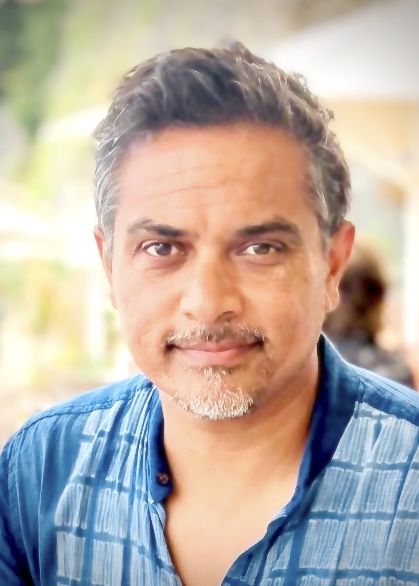
Joan Kinyua
Building Ethical AI from the Ground Up: Voices from Kenya’s Data Workforce
Summary:
This talk will explore the often-invisible labor that powers artificial intelligence, drawing from the experiences of Kenyan data labelers. It will highlight the journey of organizing for fair and ethical AI work, emphasizing worker-led solutions, accountability, and dignity in digital labor.
Bio:
Joan Kinyua is the founding President of the Data Labelers Association of Kenya (DLA) and a digital rights advocate focused on labor justice in AI. A former data labeler herself, Joan has been instrumental in developing Kenya’s first Model Contract and Voluntary Code of Conduct for AI data workers. Her work centers on amplifying worker voices in shaping ethical and equitable AI systems.

Nagla Rizk
Women, AI and Work in the ME & Africa: Feminist Perspectives from the MENA Observatory
Abstract:
Drawing on insights from the MENA Observatory on Responsible AI, the talk will explore how AI is impacting women’s work in the ME and Africa, noting the opportunities and examining the risks, advocating for the adoption of a feminist lens to harness the transformative power of Feminist AI.
Bio:
Nagla Rizk is Professor of Economics and Founding Director of the Access to Knowledge for Development Center (A2K4D) and its Middle East and North Africa Observatory on Responsible Artificial Intelligence at the American University in Cairo’s Onsi Sawiris School of Business,
Nagla’s area of research, teaching and advocacy is the economics of knowledge, technology and development, with focus on responsible data, Artificial Intelligence and inclusion; the future of work, gender and the platform economy; copyright and innovation in Egypt, the Middle East and North Africa (MENA).
Nagla leads the Middle East Chapter of the Global Index on Responsible AI and the North Africa hub of the Open African Innovation Research Partnership (Open AIR),
Nagla also has a record of policy impact in Egypt in the area of open source technologies, regulation of ride sharing and advocacy for the right to information. She is member of the Technical Secretariat of Egypt’s National Council for Artificial Intelligence and is a major contributor to Egypt’s AI Strategy. She also served as the Knowledge Economy Expert for Egypt’s Vision 2030 Development Strategy.
Nagla has received a number of awards, including being recently named by Leading Women Africa as one of 19 African women leading the global AI Transformation.
She is a member of ITU Academic Advisory Body on Emerging Technologies and the Meta AI Governance Working group for Africa, the Middle East and Turkey (AMET) and the Global Academic Network of the Center for AI and Digital Policy (CAIDP).
She founded the Open Data for Development Node for the Middle East and North Africa, led the MENA Hub for Feminist AI Research (f<a+i>r) network and was head of Egypt’s team within the Fairwork action research initiative, led by the Oxford Internet Institute.
Nagla has a record of membership in several other international committees and organizations. Examples include the World Economic Forum’s Global Future Councils, the Paris Peace Forum Digital Rights in Society Working Group on Algorithmic Governance, the Scientific Advisory Committee of Feminist AI Research (f<a+i>r) network, the Open for Good Alliance, Inclusive AI Commons and the Data Governance Working Group of the Global Partnership on AI (GPAI).

Call for papers
دعوة لتقديم الملخصات – النسخة الثانية من مؤتمر INDL-MEA
العمل الرقمي في الشرق الأوسط وأفريقيا: الاتجاهات الناشئة، التحديات، والفرص
بعد النجاح الذي حققته النسخة الافتتاحية من مؤتمر INDL-MEA، يسُر الشبكة الدولية للعمل الرقمي (INDL)، وجامعة أنجيه (Université d’Angers)، ومركز إتاحة المعرفة من أجل التنمية (A2K4D) بكلية إدارة الأعمال بجامعة القاهرة الأمريكية، دعوتكم للمشاركة في النسخة الثانية من مؤتمر INDL-MEA.
سيُعقد هذا الحدث عبر الإنترنت فقط هذا العام، في 25 و26 نوفمبر 2025، ويتم تنظيمه بالتعاون مع منظمة العمل الدولية (ILO) وبرنامج الأبحاث العمل عبر المنصات الرقمية (DiPLab). يشكل هذا المؤتمر منصة إقليمية رئيسية تجمع الباحثين، وصناع السياسات، والممارسين المهتمين بدراسة مستقبل العمل الرقمي، والعمل المؤقت، والعمل بالبيانات، ومراقبة المحتوى، والوظائف المرتبطة بالذكاء الاصطناعي في منطقتي الشرق الأوسط وأفريقيا.
لا يزال العمل الرقمي يتطور كمكون أساسي في الاقتصادين العالمي والإقليمي، إذ يشكّل فرص التوظيف، وبُنى الاقتصاد، والنقاشات السياسية. وتمثل منطقتا الشرق الأوسط وأفريقيا خصوصية في هذا السياق من حيث التحول نحو العمل عبر المنصات، والإدارة الخوارزمية، وعدم الرسمية في العمل، وريادة الأعمال الرقمية، إلى جانب قضايا التنظيم، وعدالة العمل، وتمكين العاملين الرقميين.
من خلال النسخة الثانية من مؤتمر INDL-MEA، نهدف إلى تعزيز المعرفة المتعددة التخصصات وتطوير رؤى ترتبط بالسياسات حول العمل الرقمي، والأتمتة، وحماية العمال، والحقوق الرقمية في المنطقة.
سيضم مؤتمر INDL-MEA 2 عروضاً تقديمية بثلاث لغات: العربية، والإنجليزية، والفرنسية، مما يعكس التنوع الثقافي واللغوي في المنطقة.
المحاور الرئيسية المقترحة
ندعوكم لتقديم ملخصات تتناول المحاور التالية المتعلقة بالعمل الرقمي في الشرق الأوسط وأفريقيا:
- الاقتصاد السياسي للعمل الرقمي في المنطقة: تحليل كيفية تأثير البنى الاقتصادية، وأسواق العمل، والسياسات الحكومية على طبيعة العمل عبر المنصات.
- الإدارة الخوارزمية وحقوق العمال: دراسة تأثير آليات التحكم الخوارزمية على الأمن الوظيفي، والأجور، واستقلالية العامل في سياق معين من المنطقة.
- النساء والنوع الاجتماعي والمهن الرقمية: تحليل تجارب العمل الرقمي وريادة الأعمال الرقمية من منظور النوع الاجتماعي في المنطقة.
- الذكاء الاصطناعي، والأتمتة، وتحولات سوق العمل: فهم تأثير التقنيات الناشئة على ديناميكيات العمل، والمهارات المطلوبة، وفرص التوظيف.
- اقتصاد المنصات والعمل الهش: استكشاف مظاهر العمل غير الرسمي والعمل المؤقت عبر المنصات والتحديات المرتبطة بها في المنطقة.
- تنظيم العاملين الرقميين والعمل الجماعي: رسم خرائط لأشكال جديدة من التضامن والمقاومة والمبادرات القاعدية للعاملين الرقميين.
- الاستجابات السياسية والتنظيمية للعمل الرقمي: تقييم كيفية تفاعل الحكومات والمؤسسات الإقليمية مع تحديات العمل عبر المنصات.
إرشادات تقديم الملخصات
- يجب ألا يتجاوز الملخص 400 كلمة.
- يمكن تقديم الملخصات باللغة العربية أو الإنجليزية أو الفرنسية.
- يجب أن تتضمن كل مشاركة ما يلي:
- عنوان المشاركة
- اسم (أسماء) المؤلف والمؤسسة/الجهة التابعة
- الملخص (يشمل هدف البحث، المنهجية، النتائج الرئيسية، ومدى ارتباطه بموضوع العمل الرقمي)
- المحور أو المحاور المفضلة من القائمة أعلاه
- يجب تقديم جميع الملخصات عبر نظام تقديم المؤتمر: (رابط منصة ScienceConf)
تواريخ مهمة
- الموعد النهائي لتقديم الملخصات
: 31أغسطس15 سبتمبر2025 - إشعار القبول: 30 سبتمبر 2025
- تاريخ المؤتمر: 25 و26 نوفمبر 2025
نشجع على المشاركة من قبل الباحثين المتمرسين والمبتدئين على حد سواء، بالإضافة إلى الممارسين، والمنظمين النقابيين، وصانعي السياسات، والنشطاء في مجال العمل الرقمي. يسعى مؤتمر INDL-MEA إلى تعزيز حوار متعدد التخصصات يجمع بين خبرات في مجالات مثل علم الاجتماع، الاقتصاد السياسي، القانون، علوم الحاسوب، دراسات العمل، ودراسات التنمية.
نتطلع إلى مساهماتكم القيّمة ومشاركتكم في دفع النقاش حول العمل الرقمي في الشرق الأوسط وأفريقيا!
انضموا إلينا لإثراء النقاش!
التسجيل
المشاركة في المؤتمر مجانية، ولكن التسجيل إلزامي.
يجب على جميع المؤلفين الذين سيقدمون عروضًا في المؤتمر التسجيل.
سيتم الإعلان قريباً عن تفاصيل التسجيل.
عن مؤتمرات INDL
الشبكة الدولية للعمل الرقمي (INDL) هي مبادرة تأسست عام 2019 من قبل باحثين من دول متعددة.
تهدف الشبكة إلى تنظيم مؤتمرات دولية وتعزيز التعاون العلمي لفهم التحولات الناشئة في العمل والتقنيات الرقمية.
ترحب مؤتمرات INDL بالباحثين من جميع المستويات، بما في ذلك الباحثين في بداية مسيرتهم المهنية، فضلاً عن الجهات المعنية الأخرى مثل قادة النقابات، وصانعي السياسات، والفنانين، والصحفيين.
Call for Papers: 2nd INDL-Middle East and Africa conference
Digital Labor in the Middle East and Africa:
Emerging Trends, Challenges, and Opportunities
25-26 November 2025
Online confernece
Following the success of the inaugural INDL-MEA Conference, the International Network on Digital Labor (INDL), The Université d’Angers, and the Access to Knowledge for Development Center (A2K4D) at The American University in Cairo’s Onsi Sawiris School of Business are pleased to invite you to the second edition of the INDL-MEA Conference.
This event will take place this year exclusively online, on the 25 and 26 November 2025 and is organized in collaboration with the International Labour Organization (ILO) and the Digital Platform Labor (DiPLab) research program. The conference will serve as a key regional forum for researchers, policymakers, and practitioners engaged in studying and shaping the future of digital labor, gig work, data work, content moderation, and AI-related jobs in the Middle East and Africa.
Digital labor continues to evolve as a defining feature of global and regional economies, shaping employment opportunities, economic structures, and policy debates. The Middle East and Africa (MEA) present unique dynamics in digital labor, characterized by platformization, algorithmic management, labor informality, and digital entrepreneurship, alongside issues of regulation, fair work practices, and digital workers’ agency.
With INDL-MEA’s second edition, we aim to enhance interdisciplinary and policy-relevant insights into platform work, automation, labor protections, and digital rights in the MEA region.
INDL-MEA 2 will feature presentations in Arabic, English, and French, reflecting the linguistic and cultural diversity of the region.
Key Themes
We invite abstracts that engage with the following key themes related to digital labor in the Middle East and Africa:
Key Suggested Themes:
- The Political Economy of Digital Labor in MEA: Examining how platform work is shaped by economic structures, labor markets, and state policies in the region.
- Algorithmic Management and Workers’ Rights: Analyzing how algorithmic control influences job security, wages, and worker autonomy in a particular MEA context.
- Women, Gender, and Digitally-Mediated Occupations: Investigating gendered experiences of platform labor and digital entrepreneurship in the MEA region.
- AI, Automation, and Labor Transformations: Understanding how emerging technologies impact labor dynamics, skill requirements, and employment opportunities in MEA.
- The Platform Economy and Precarious Work: Exploring MEA related informalization, gig work, and platform-induced labor insecurities.
- Digital Worker Organizing and Collective Action: Mapping new forms of resistance, worker solidarity, and grassroots initiatives in the region.
- Regulatory and Policy Responses to Digital Labor: Assessing how governments and local / regional institutions are addressing platform labor challenges.
Submission Guidelines
- Abstracts should be a maximum of 400 words.
- They can be written in English, Arabic, or French.
- Submission must include:
- Title
- Author(s) name and affiliation
- Abstract (including research objective, methodology, main findings, and relevance to digital labor research)
- Preferred theme(s) (from the list above)
- All abstracts should be submitted via the conference submission system: (submission link to scienceconf).
Important Dates
- Abstract submission deadline:
August 31, 15 Septemeber 2025 - Notification of acceptance: September 30, 2025
- Conference dates: November 25-26, 2025
We encourage contributions from both established and early-career researchers, as well as practitioners, labor organizers, policymakers, and digital labor activists. INDL-MEA seeks to foster cross-disciplinary dialogue, bringing together expertise from sociology, political economy, law, computer science, labor studies, development studies, and more.
We look forward to your contributions and to advancing the conversation on digital labor in the Middle East and Africa! Join Us to stir the discussions!
Registration
Participation is free of charge, but registration is mandatory. All presenting authors must register. Registration details will be provided soon.
For further inquiries, please contact: myriam.raymond@univ-angers.fr and contact@indl.network
INDL Conferences
INDL, the International Network on Digital Labor, is an initiative founded in 2019 by researchers from different countries. Its mission is to organize international conferences and foster collaboration to advance our understanding of the nexus between emerging transformations of labour and digital technologies. INDL conferences welcome academics at all levels – also including early career researchers – and other stakeholders such as union leaders, policymakers, artists and journalists.
Appel à communications – 2ᵉ édition INDL-MEA
Travail numérique au Moyen-Orient et en Afrique :
tendances émergentes, défis et opportunités
À la suite du succès de la première conférence INDL-MEA, le Réseau international sur le travail numérique (INDL), l’Université d’Angers, et le Access to Knowledge for Development Center (A2K4D) de l’Université américaine du Caire (Onsi Sawiris School of Business) ont le plaisir de vous inviter à participer à la deuxième édition de la conférence INDL-MEA.
Cet événement se tiendra exclusivement en ligne, les 25 et 26 novembre 2025, et est organisé en collaboration avec l’Organisation internationale du travail (OIT) et le programme de recherche Digital Platform Labor (DiPLab).
La conférence constituera un forum régional clé réunissant chercheurs, décideurs politiques et praticiens engagés dans l’étude et la transformation du futur du travail numérique, du travail à la tâche, du travail de données, de la modération de contenus et des métiers liés à l’IA au Moyen-Orient et en Afrique.
Le travail numérique continue d’évoluer en tant que caractéristique majeure des économies mondiales et régionales, influençant les opportunités d’emploi, les structures économiques et les débats politiques.
La région Moyen-Orient et Afrique (MEA) présente des dynamiques uniques marquées par la plateformisation, la gestion algorithmique, l’informalité du travail et l’entrepreneuriat numérique, ainsi que par des enjeux de régulation, d’équité et de pouvoir d’agir des travailleurs numériques.
Avec cette deuxième édition d’INDL-MEA, nous visons à enrichir les connaissances interdisciplinaires et les perspectives politiques sur le travail de plateforme, l’automatisation, la protection du travail et les droits numériques dans la région MEA.
La conférence proposera des présentations en arabe, anglais et français, afin de refléter la diversité linguistique et culturelle de la région.
Thématiques clés suggérées
Nous invitons des propositions de communication portant sur les thématiques suivantes en lien avec le travail numérique au Moyen-Orient et en Afrique :
- Économie politique du travail numérique en MEA : analyse des structures économiques, des marchés du travail et des politiques publiques qui façonnent le travail de plateforme dans la région.
- Gestion algorithmique et droits des travailleurs : étude de l’impact du contrôle algorithmique sur la sécurité de l’emploi, les rémunérations et l’autonomie des travailleurs dans un contexte MEA spécifique.
- Femmes, genre et professions numériques : exploration des expériences genrées du travail de plateforme et de l’entrepreneuriat numérique dans la région MEA.
- IA, automatisation et transformations du travail : compréhension des effets des nouvelles technologies sur les dynamiques du travail, les compétences requises et les opportunités d’emploi.
- Économie des plateformes et précarisation du travail : analyse de l’informalisation, du travail à la tâche et de l’insécurité induite par les plateformes dans les contextes MEA.
- Organisation collective et mobilisation des travailleurs numériques : cartographie des formes de résistance, de solidarité et d’initiatives de terrain dans la région.
- Réponses réglementaires et politiques publiques : évaluation des initiatives locales, nationales ou régionales pour encadrer le travail sur plateformes.
Modalités de soumission
- Les résumés doivent comporter 400 mots maximum
- Ils peuvent être rédigés en français, anglais ou arabe
- Chaque soumission doit inclure :
- Le titre de la communication
- Le(s) nom(s) et affiliation(s) de l’auteur ou des auteurs
- Le résumé incluant : objectifs de recherche, méthodologie, résultats principaux et lien avec les thématiques du travail numérique
- La ou les thématiques préférées (voir liste ci-dessus)
➡️ Toutes les soumissions doivent être effectuées via la plateforme de soumission de la conférence.
Dates importantes
- Date limite de soumission des résumés :
31 août15 septembre 2025 - Notification d’acceptation : 30 septembre 2025
- Dates de la conférence : 25–26 novembre 2025
Nous encourageons la participation de chercheur·e·s confirmé·e·s et en début de carrière, ainsi que de praticien·ne·s, syndicalistes, décideur·euse·s publics et militant·e·s du travail numérique.
INDL-MEA a pour ambition de favoriser un dialogue interdisciplinaire, en mobilisant des expertises en sociologie, économie politique, droit, informatique, études du travail, études du développement, etc.
Nous attendons vos contributions avec intérêt pour faire avancer les réflexions sur le travail numérique au Moyen-Orient et en Afrique.
Rejoignez-nous pour nourrir le débat !
Inscription
La participation est gratuite, mais l’inscription est obligatoire.
Tous les auteurs présentant une communication doivent s’inscrire.
Les modalités d’inscription seront communiquées prochainement.
Pour toute question, veuillez contacter :
📧 myriam.raymond@univ-angers.fr
📧 contact@indl.network

